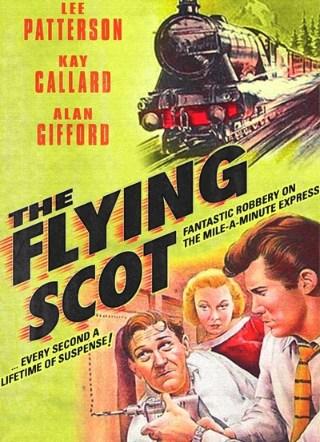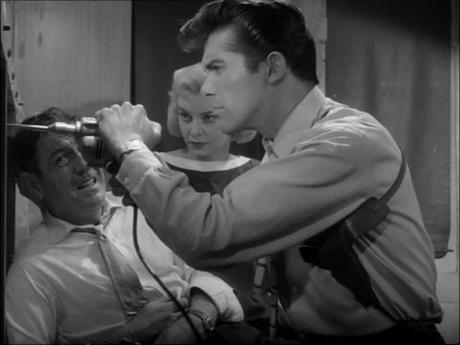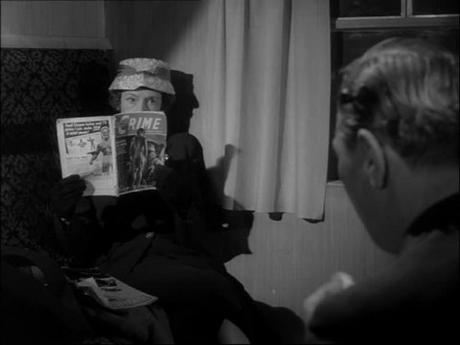
We hear a lot about budgets when filmmaking is discussed, and you end up with the feeling nowadays that movies are barely considered to be worth watching if the amount of money invested in the production isn't of the eye-watering variety. This is a shame as it means the range of films made tends to be reduced and, crucially, fewer chances are taken for the simple reason no one wants to accept a risk when the stakes are so high. Now I'm not trying to make a case here for the inaccessible or the utterly impenetrable - movies which are not entertaining or watchable are going to be failures not merely in financial terms but also due to the fact they cannot succeed if they cannot engage with an audience. If I'm lamenting the current obsession with massive budgets, then that's because it does away with (or at least significantly reduces the potential for seeing) sparse and direct pieces which depend on tight storytelling techniques rather than whizz bang visuals. I'm referring to frugal little productions like The Flying Scot (1957), the kind of minimalist drama we can't even count on television taking on these days.
The Flying Scot has three major points in its favor as far as I'm concerned: it takes place almost exclusively on a train, it's concerns itself with a heist, and it's pared so far down that practically no excess fat is evident. The opening pitches us straight into the heart of proceedings, tracking along a railway platform to follow the progress of a newly wed couple about to embark on a train to begin their honeymoon, and thereafter their life together. We see them settle in, put up a reserved notice on the door, draw the curtains. And then they change into casual clothes and lie down on separate berths on opposite sides of the carriage! It's now quite clear that these people (Lee Patterson & Kay Callard) are no newlyweds, they and their associate in another car (Alan Gifford) are biding their time till they're due to act. And that action is the smooth and meticulous execution of a plan to steal a half a million pounds in banknotes. Everything moves like clockwork with each person fulfilling his or her assigned role with precision and cool professionalism - it's at this point that we pause, step back in time, and see what really happens...

The director of The Flying Scot was Compton Bennett, a man with a comparatively small yet interesting set of credits. His big Hollywood success was King Solomon's Mines but there were other noteworthy titles both in the US and the UK. That this was a very low budget affair is apparent from the small cast with no big names, the limiting of the action to a handful of train carriage sets and the running time of not much more than an hour. However, as I hope my introductory remarks suggested, a limited budget doesn't have to mean a poor quality movie. With The Flying Scot Bennett turns these aspects to his and the film's advantage by using the cramped and suffocating space as a device for ramping up the tension, emphasizing the sense of characters trapped by their own criminal plans. Similarly, the short running time positively demands the pace is maintained, the plot forging ahead relentlessly just as the train where it all takes place heads inexorably towards its destination. I'd also like to note the stylish opening section where the first ten minutes or so is played out with one word of dialogue being spoken, it could be described as gimmickry I suppose but it never actually feels like that. Furthermore, that opening and how it then develops reminded me of the beginning of Gambit, a later film with a lighter overall feel. The presence of Peter Rogers as producer and Norman Hudis as screenwriter brings to mind the Carry On series of comedies that would shortly debut in British cinemas and seem like an odd pair to be attached to a tense little suspense picture such as this. In truth, there is a thread of humor running through the film, but it 's of a more carefully observed type than the bawdier variety the aforementioned series would become famous for - having said that, those early Hudis scripts had a gentler approach anyway.

As far as a general audience is concerned, Lee Patterson is probably not a name that will be especially well-recognized. On the other hand, anyone who is a fan of, or even just reasonably familiar with, British thrillers of the 50s and 60s will be very much aware of this guy. Patterson was a Canadian actor who seemed to get cast in every other mystery or noirish thriller, so much so that it's nearly impossible to have watched more than a handful of these kinds of films without coming across him. I've always found him a reliable enough performer, not a big draw but the type who you know will get the job done whether he was cast as good guy or bad. Here, he's playing a man who is tough to like, displaying a bit too much unnecessary arrogance and self-absorption. He does it pretty effectively and fellow Canadian Kay Callard helps to smooth down his rough edges a little. Alan Gifford, yet another transatlantic import, provides just the right degree of pathos as the ageing crook hoping for one last touch to set him up for retirement but plagued by a health problem and a plan that's fraying uncontrollably.
The Flying Scot is out on DVD in the UK via Network as part of the ever attractive The British Film line. I imagine a 1957 title would be better suited to at least some form of widescreen aspect ratio but it still looks fine, to me at least, with the 1.33:1 framing used on this disc. The print is in pretty good shape too with no major damage to cause distraction. As for extra features, there's the facility to watch the opening under the alternative title The Mailbag Robbery. All in all, I thought this a very neat thriller, well constructed and satisfyingly tense - it gets a recommendation from me.
